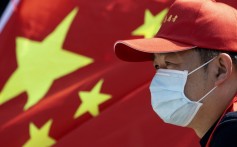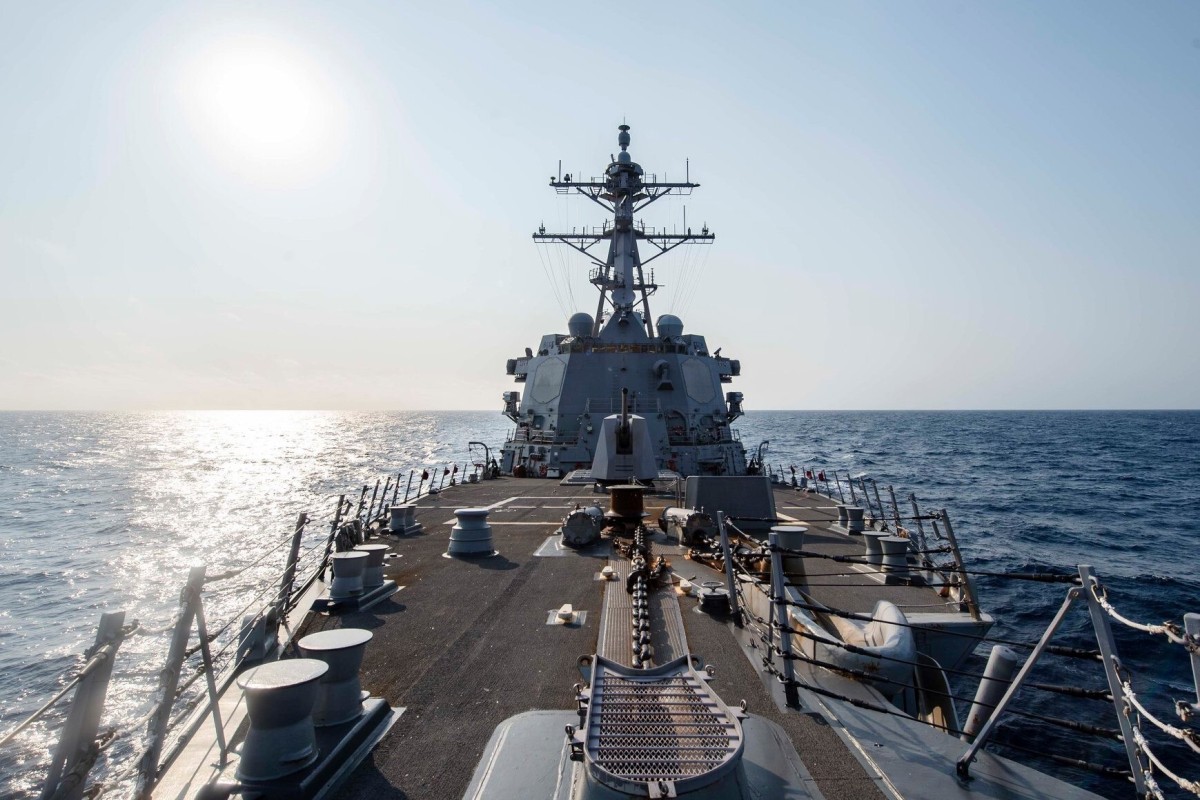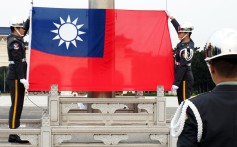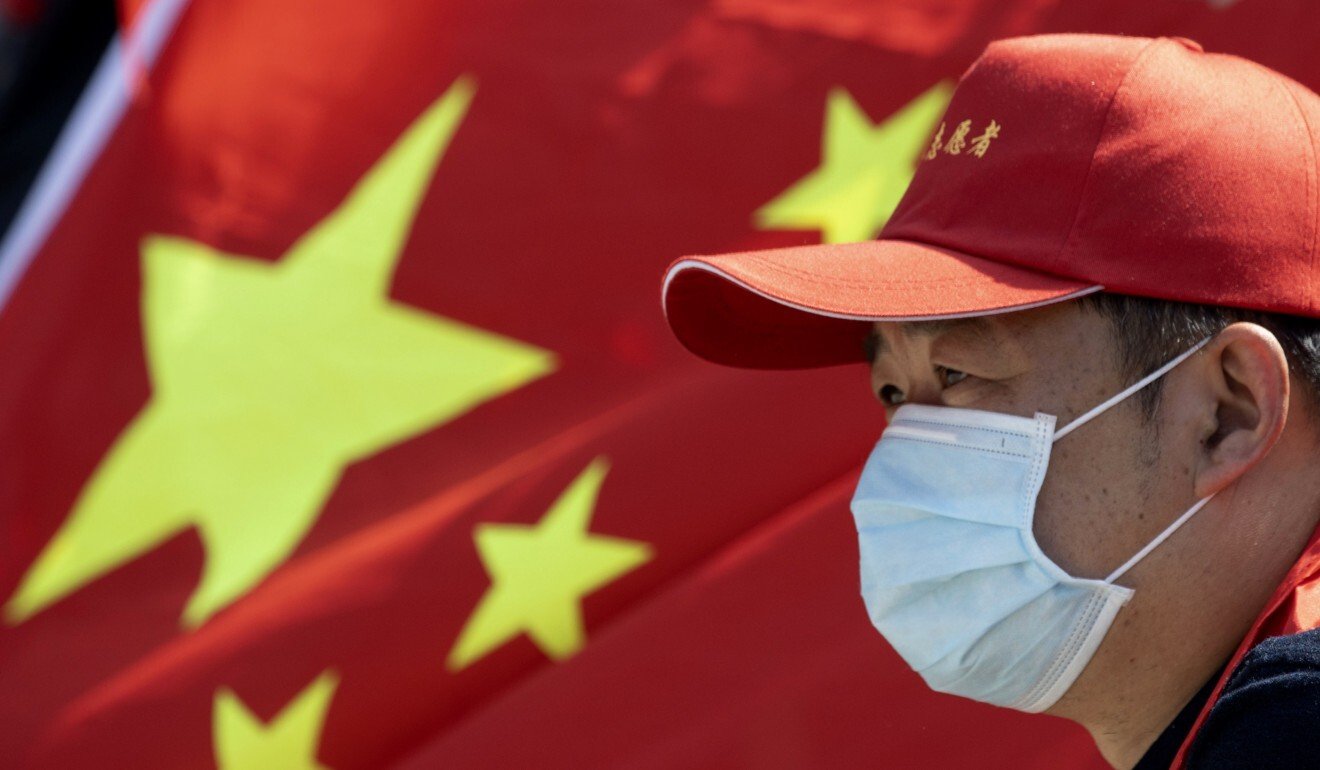Too soon, too loud: Chinese foreign policy advisers tell ‘Wolf Warrior’ diplomats to tone it down
- Combative approach is driving the world further away from China, they say
- Scholar calls for a halt to debate over origin of the coronavirus, saying it is only making the blame game worse

Catherine Wong
Published: 12:00pm, 14 May, 2020
Why you can trust SCMP
325
China is under increasing pressure over its handling of the coronavirus pandemic. Photo: AFP
Leading Chinese scholars and foreign policy advisers have taken aim at the country’s “Wolf Warrior” diplomats and state media, saying their efforts to defend Beijing’s handling of
the coronavirus pandemic
are backfiring.
A new wave of nationalistic sentiment has emerged in China as it makes its way on the path to recovery, with diplomats and state media outlets fanning the flames.
Emboldened by the country’s success in containing the outbreak at home, and displeased with what they see as unfair criticism of China from abroad, they have taken to social media and official news outlets to defend Beijing’s handling of the outbreak.
China is under attack for the pandemic, but its diplomats are fighting back
27 Apr 2020


But some of the country’s top foreign policy advisers say the aggressive nationalism is only serving to drive the world further away from China.
Advertisement
“The aim is to promote the Chinese political system as superior, and to project the image of China as a world leader in combating a global health crisis,” Shi Yinhong, an international relations professor at Renmin University of China, said during an online seminar arranged by the college on Friday.
“But the problem is, [these efforts] have failed to recognise the complexities that have emerged on the global stage during the pandemic, and they are being done too hastily, too soon and too loudly in tone, so there is a huge gap between what is intended and what is achieved,” he said.
A new wave of nationalistic sentiment has emerged in China. Photo: AP
The speech by Shi, who has been an adviser to the State Council, China’s cabinet, since 2011, was posted on an official university social media account on Monday.
He also said China should change course “as soon as possible” and instead take a more nuanced approach to the rising anti-China sentiment among policymakers in Washington.
“When both the official and non-official media are all adopting an aggressive tone when reporting about the US, it’s not conducive to [turning] public opinion,” he said, suggesting Beijing should direct some of its official media to take a more conciliatory tone.
https://www.scmp.com/news/china/dip...-haunt-us-inside-warnings-against-chinas-wolf
Shi also called for a halt to the debate about the origin of the virus “because this is only exacerbating the blame game between China and the US”, saying that it would take time to find an answer.
https://www.scmp.com/news/china/dip...re-only-answering-xi-jinpings-call-are-chinas
Pressure is mounting on China to allow an inquiry into the origin of the virus, with the United States and other countries pressing Beijing for greater transparency. The first cases of the new coronavirus were reported in central China late last year, and it has since spread around the world, infecting more than 4.2 million people and killing over 291,000.
Coronavirus pandemic creates ‘new Cold War’ as US-China relations sink to lowest point in decades
Young Chinese foreign ministry spokesman Zhao Lijian has been at the front of
the “Wolf Warrior” pack
of ambassadors and senior diplomats, named after the patriotic blockbuster films. Zhao, who is known for his controversial Twitter outbursts, caused a stir by
promoting the conspiracy theory
that the US could have brought the virus to Wuhan, the initial epicentre of the outbreak in China.
His approach has been followed by a number of Chinese diplomats around the world. In Paris, Chinese envoy Lu Shaye was summoned by the French foreign ministry to explain comments on his embassy website claiming that France had left its citizens to die of coronavirus in aged care homes.
Meanwhile, official news agency Xinhua caused controversy with an article suggesting the US and the world “owes China an apology and thanks” for its efforts to fight the pandemic.
In a separate online seminar organised by Renmin University on Sunday, Zhu Feng, dean of international relations at Nanjing University, said the “Wolf Warriors” had worsened tensions between Beijing and Washington, and called on China to calm the situation and adjust its foreign policy.
Coronavirus: Can China overcome global mistrust to lead the fight against Covid-19
Another top adviser criticising the nationalist shift in diplomacy was Yan Xuetong, one of China’s leading thinkers on foreign affairs and security.
“Some media outlets compare the progress made in China and in Europe in fighting against the epidemic, and they attribute [China’s relative success] to the difference in political systems,” Yan said in an interview with
Caixin on April 30.
“This kind of rhetoric risks creating a backlash in some of the European countries still battling the outbreak. Any direct or indirect criticism of other countries’ political systems will only exacerbate the ideological conflict,” said Yan, an international relations professor with Tsinghua University and an adviser to the National Security Commission.
Yan, who has a reputation as a foreign policy hawk, also took a veiled swipe at the country’s more bellicose diplomats, saying more “rationality” was needed and warning against the influence of nationalist sentiment on policymaking.














